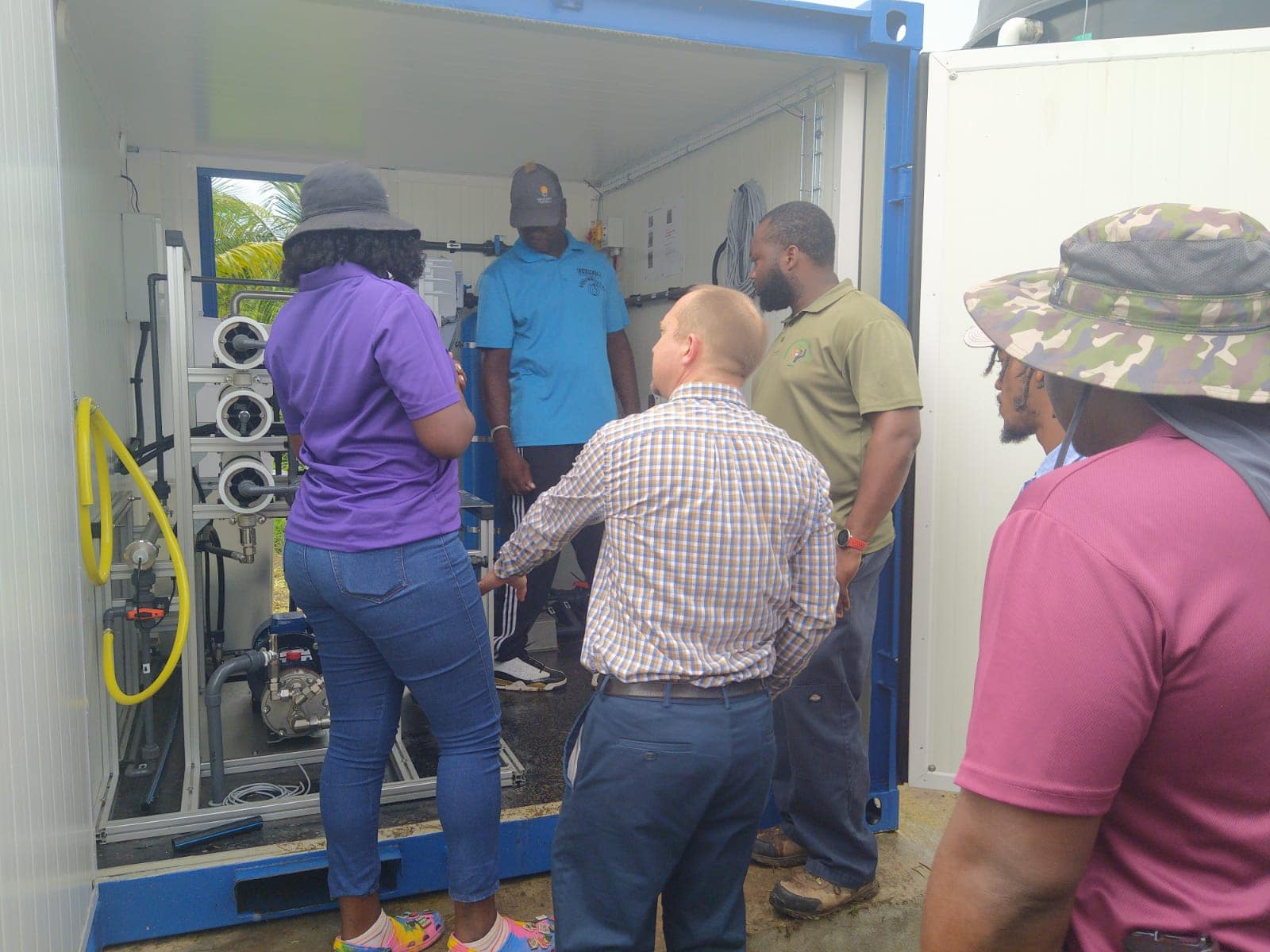A groundbreaking solar-powered desalination project in Antigua has achieved a significant milestone, marking a new era in agricultural innovation. The Blubber Valley Osmosis Plant, a collaborative effort between the United Nations’ Food and Agriculture Organization (FAO), Antigua’s Ministry of Agriculture, and Texas Tech University, is transforming brackish groundwater into vital irrigation water for the nation’s key crops. This initiative leverages cutting-edge reverse osmosis technology powered entirely by solar energy. The system extracts water from a nearby APUA well, processes it through a reverse osmosis unit, and stores it for agricultural use. Each cycle yields approximately 2,000 gallons of low-salinity water suitable for irrigation and 1,000 gallons of brine concentrate. While the permeate is ideal for crop irrigation, managing the brine remains a critical challenge to prevent soil salinity buildup. To address this, the Ministry’s technical team is researching salt-tolerant crops that can thrive with slightly brinier water without harming the soil. Antigua’s diverse soil types—calciferous in the north, clay-heavy in the central plains, and volcanic in the south—will be used to evaluate the system’s effectiveness across different regions. Professor Shane Walker of Texas Tech University praised APUA for its infrastructure support, emphasizing the project’s potential to enhance water security and agricultural resilience. Luke Nedd, FAO National Project Coordinator, highlighted the initiative’s alignment with FAO’s mission to promote climate-smart and sustainable agricultural practices. “This project demonstrates how innovation and sustainability can work together to build a more resilient agricultural sector,” Nedd stated. The next phase involves direct engagement with farmers to implement the technology, further strengthening Antigua’s agricultural future.
Solar-Powered Desalination Marks Major Breakthrough for Antigua’s Agricultural Future
